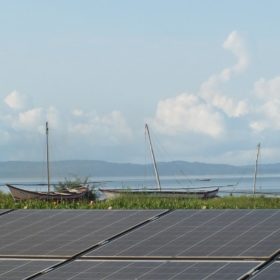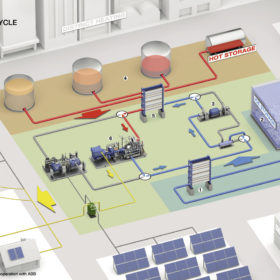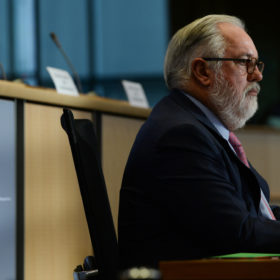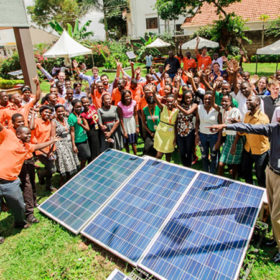Innovation boosts lithium-ion battery recycling rate to over 80%
Finnish clean-energy company Fortum has achieved a lithium-ion battery material recycling rate of over 80% — against what it says is a current rate of 50% — with a low-carbon hydrometallurgical recycling process.
Volkswagen, Northvolt to set up battery research consortium
Automaker Volkswagen and Swedish lithium-ion battery producer Northvolt have announced plans to jointly form and lead a new organization, the European Battery Union (EBU), to conduct research on batteries used in transport and stationary energy storage applications.
Off-grid solar could bring electricity to 740 million people by 2022
As RP Global starts work on 11 solar hybrid mini-grids on Lake Victoria that will supply electricity to 160,000 people, analyst Wood Mackenzie has released a report stating how increased capital flows in the sector may still fall short of securing universal electricity access by 2030. Nonetheless, off-grid solar is the cheapest and most viable solution for remote areas and attracts investment from fossil fuel majors and venture capital funds.
Storage Highlights Countdown #5; Thermoelectric energy storage – MAN Energy Solutions
In the run-up to the Energy Storage Europe conference pv magazine is featuring the top ten developments in the field as our Energy Storage Highlights, selected by an independent jury of experts. Last week we revealed #6, a ’70s revival of a ceramic high temperature battery.
IRENA presents its crash course in adopting renewables
The International Renewable Energy Agency has examined how common ground between sectors; digitalization; and technological innovation can transform the energy system and lower the cost of renewables. Storage technologies such as behind-the-meter applications, utility-scale storage and power-to-x are working in the right direction and much can be learned about digitalization from other sectors.
Storage Highlights Countdown #8; Supercapacitators – fast and powerful Skeleton Technologies
The Energy Storage Europe conference is nearing and pv magazine is featuring the top ten developments in the field as our Energy Storage Highlights, selected by an independent jury of experts. Having kicked off with a hydrogen fuel cell based approach to self-sufficient living in Switzerland, and DNV GL’s bid to map the vast battery storage landscape, we continue with a small island’s approach to grid stability.
Shell Foundation and Rockefeller support $11bn African mini-grids fund
Crossboundary Energy Access – which claims to be the continent’s first mini-grid financing facility – wants to unlock $11 billion in private capital to bring energy to 100 million people in sub-Saharan Africa. Raising capital has been a struggle despite mini-grids being lauded as a solid solution for electrification.
SolarNow to bring off-grid PV to 17,500 more Ugandan homes
The domestic company has cleared a third debt funding facility of $9 million with Kenya-based SunFunder, responsAbility and Oikocredit. The credit means 2.5 MW of off-grid capacity, enough to bring energy to 70.000 people.
World Bank injects $100 million to support solar in Pakistan
The funds will be used to implement the Sindh Solar Energy Project, a scheme aimed at increasing solar power generation and access to electricity in Sindh province.
$126 million earmarked for small-scale RE in Africa
During COP24, U.K. Energy Minister Claire Perry announced that her government will increase its efforts to help bring clean energy to Sub-Saharan Africa. A total of $126 million will be channeled via the REPP platform, which has already realized 18 projects with a considerable number of beneficiaries.









